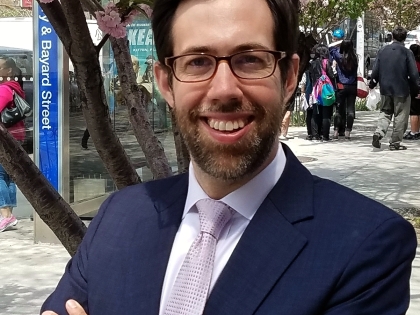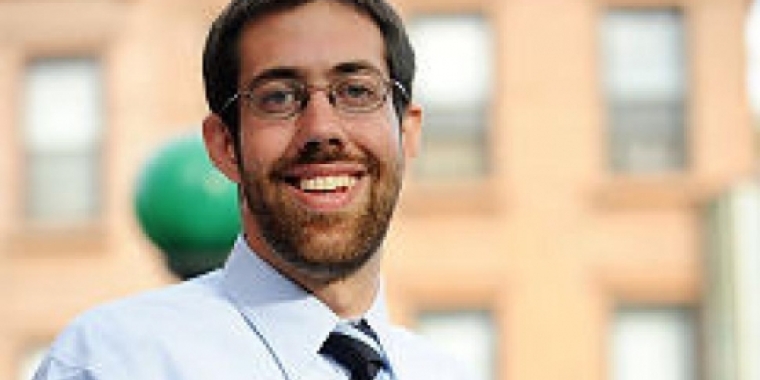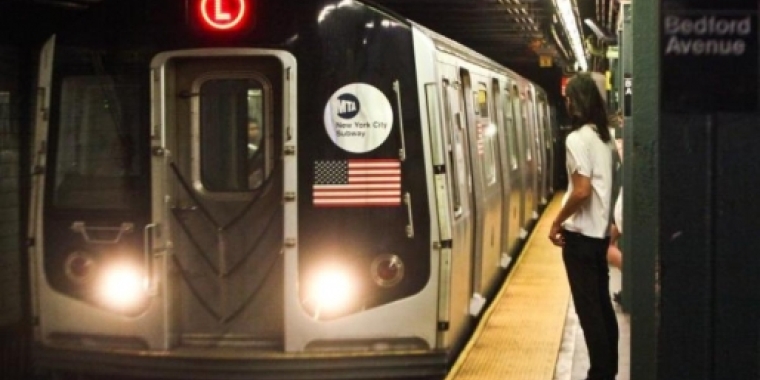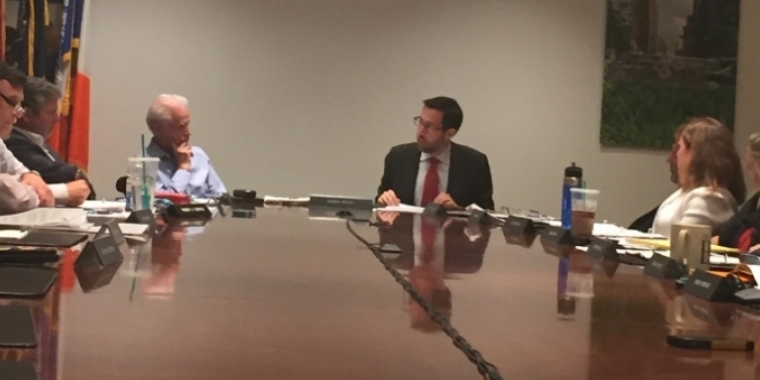
Senator Squadron, Assembly Speaker Silver, DOT Commissioner Sadik-Khan and Council Member Chin Applaud Signing of Intercity Bus Permit Bill into Law
Daniel L. Squadron
August 17, 2012
Governor Cuomo Signs Silver-Squadron Bill Authorizing the City to Create the First-ever Permit System For Intercity Buses, Designating Bus Stops and Increasing Oversight of the Industry
Assembly Speaker Sheldon Silver, State Senator Daniel Squadron, Department of Transportation Commissioner Janette Sadik-Khan and Council Member Margaret Chin today applauded Governor Cuomo for signing into law the Silver-Squadron bill creating the first-ever permit system for intercity buses.
Under the new law, the city now has the power to designate bus stops with community consultation, as well as require bus companies to provide information about the buses they are using, the number of passengers they expect to carry, and where they would be parked when not in use. Violators will face fines of up to $2,500 and the loss of their permit.
Intercity, low-cost buses have become increasingly popular in recent years but have caused serious problems on the streets of Chinatown in Manhattan and elsewhere by idling, causing congestion and pollution, and interfering with pedestrians and businesses. The new permit system will help address those problems while allowing the industry to continue to serve a growing number of riders.
"By creating the first-ever permit system for intercity buses, we're taking a big step toward protecting communities and passengers alike. Our new system will bring oversight to the growing and important low-cost bus industry, helping to end the wild west atmosphere in Chinatown and around the city while allowing us to identify problems before they become tragedies," said Senator Squadron. "I look forward to working with DOT, the community, and our partners on the federal and local levels to implement the permit system and continue to improve both safety and quality of life. Thank you to Governor Cuomo for signing this critical bill, and to Speaker Silver, Senators Duane and Golden, Councilmember Chin, and the city for working with me to push this new and complex issue forward."
"This new law will help bring much needed oversight to the intercity bus industry and will help improve the quality of life for my Chinatown constituents, as well as residents across the city who face the dangers and inconvenience of buses idling and blocking intersections," Speaker Silver said. "I want to thank Governor Cuomo for signing this important legislation. This permit system will help make the intercity bus experience more reliable and safer for passengers and it will help responsible bus operators by establishing clear rules and improving communications with the surrounding community."
“Intercity buses are a lifeline for people and business,” said NYC DOT Commissioner Janette Sadik-Khan. “But intercity bus transportation shouldn't turn our neighborhood streets into de facto bus depots. This law will help eliminate this legal blind spot and bring order to the free-for-all on our neighborhood streets and sidewalks.”
"This new law will drastically improve intercity bus safety and transportation in our city," said Council Member Margaret Chin. "It gives us the tools to take back our streets from fly-by-night operators and companies who engage in illegitimate practices. This law will allow police to easily identify reputable bus companies that have been permitted to operate in New York City, and crack-down on those that ignore federal safety regulations. This law will create a system under which bus drop-off, pick-up, and layover locations are designated by the city for the first time, and in partnership with the local community board. The extensive legislation addresses the very serious issues caused by intercity buses; issues that affect neighborhoods throughout New York City. I want to thank Governor Cuomo for signing this legislation into law, as well as my colleagues at the State level, Speaker Silver and Senator Squadron, for their unwavering support throughout this process."
"We are pleased that elected officials came together to pass bus legislation that responds to the concerns of residents and members of the community board," said Community Board 3 Chair Gigi Lee. "This legislation will provide an order and structure that did not previously exist. We are particularly grateful that the community board will have an opportunity to comment and review bus locations moving forward."
"I am delighted that our partners in government are taking this important first step to help restore the safety and the confidence of over 6 million bus riders who used to take Chinatown buses annually to dozen of cities and states up and down the eastern coastline. The economic implications of a safe and reliable transportation to Chinatowncannot be understated, just on ticket sales alone it is conservatively estimated at over $100 million each year. This is a true shining example of a successful public/private partnership for the common good," Wellington Z. Chen, Chinatown Partnership.
Justin Yu, Chairman of the Chinese Chamber of Commerce of New York, said, "Increased regulation and permitting for intercity buses will restore order to our city streets. This legislation helps ensure that the tourists who pour into New York to enjoy our great city can do so without the congestion and confusion caused by this new transportation network. I applaud Speaker Silver, Senator Squadron, and the Governor for their support of this measure and for standing up in defense of the safety and security our city streets and sidewalks."
"These regulations are necessary in order to improve the safety for the people of New York. We are thankful that Speaker Silver and Senator Squadron have sponsored this bill and that the Governor has signed it into law," said Virginia Kee, community leader.
"The Chinese Consolidated Benevolent Association and the Chinatown Community are happy to see the intercity buses being regulated. There were too many accidents related to these buses and some of them were fatal. We hope this bill can protect the safety of our children, elderly and pedestrians in our community," said Paul Ng, President, Chinese Consolidated Benevolent Association.
Intercity buses have also been involved in a number of serious accidents, some of them fatal. The agreement on the bill is part of a federal, state and local effort to bring stricter oversight to the industry. The legislation requires the city to consult with local community boards and allows for a 45-day comment period prior to issuing permits for pick-up and drop-off locations.
In addition to designating bus stops, the legislation would:
- Require that bus permit applications include identification of the intercity bus company, identification of the specific buses to be used, identification of the bus stop location(s) being requested, the total number of buses and passengers expected to use each location, bus schedules, and identification of the places where buses would park when not in use;
- Require the city, prior to assigning an intercity bus stop, to consult with local community boards and the MTA (if an intercity bus stop would overlap with an MTA bus stop), and to consider traffic, safety, and applicant preferences;
- Require that applicants, the local community board and the MTA (if applicable) receive notification prior to an intercity bus stop being relocated;
- Require the city, prior to issuing a permit or permanently amending a permit, to consult with the local community board, including a 45 day notice and comment period;
- Authorize intercity bus stops to be temporarily changed for up to 90 days, with written notice to the local community board no more than 30 days after such temporary amendment;
- Establish that permits would be for terms of up to three years, authorize permit fees (up to $275 per vehicle annually), and require intercity buses to display permits;
- Provide for public involvement through the city’s rulemaking process (including public hearings), and through on-line posting of approved applications and all intercity bus stops;
- Provide for penalties for intercity buses that load or unload passengers on city streets either without a permit or in violation of permit requirements or restrictions (a fine of up to $1,000 for a first violation, up to $2,500 for repeat violations, and suspending or revoking a permit).
-30-
Share this Article or Press Release
Newsroom
Go to NewsroomMy Open Letter to President-elect Trump in The Daily Beast
November 12, 2016

Squadron Responds to Charges Against Marolda Properties
November 2, 2016


